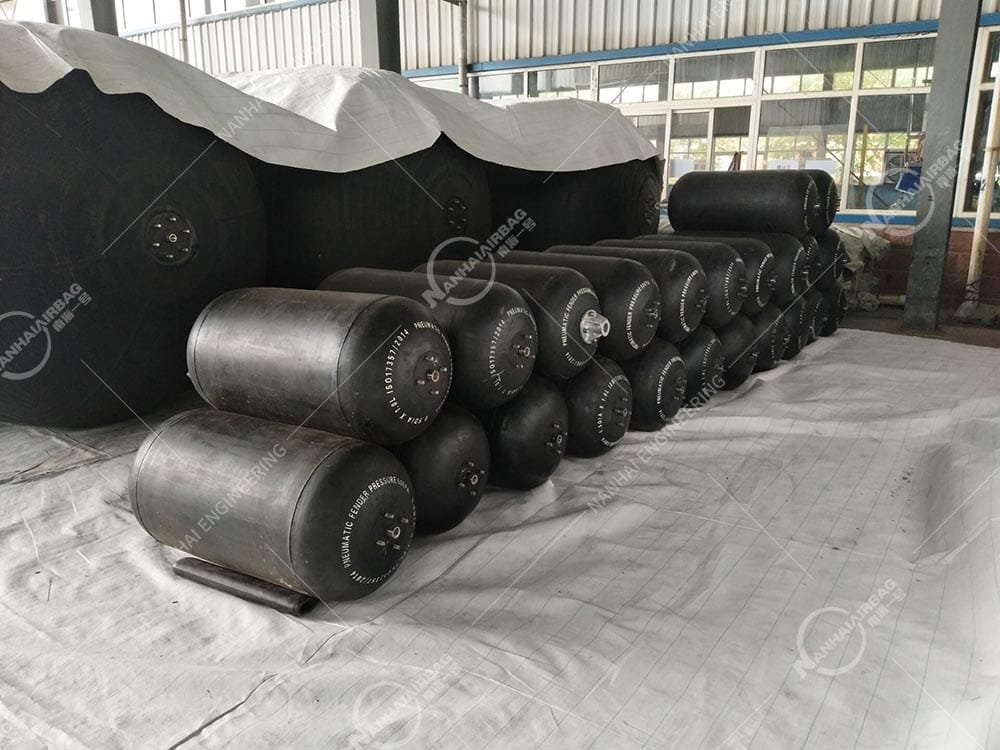Inflatable Boat Airbags’ Storage
12/06/2024Inflatable Fender Installation Instructions
12/10/2024Inflatable Fender Storage Instructions
Proper storage of inflatable fender (typically used for ship or dock protection) is essential to ensure their longevity and functionality. Here are the key points for storing them:

1. Cleaning and Drying
- Cleaning: Use a soft cloth, fresh water, and a mild detergent to clean the surface of the fender, removing dirt, salt, oil, and other substances. Avoid using harsh chemicals that could damage the material.
- Drying: Make sure the fender is thoroughly dried before storage, especially if it has been used in a humid environment, to prevent mold and material degradation.
2. Inspection and Repair
- Before storing, inspect the fender for any damage or air leaks. If any issues are found, make repairs promptly. Inflatable fenders typically come with a repair kit, and you can follow the provided instructions to fix any damage.
- Pay particular attention to seams, valves, and air chambers for any signs of leaks or wear.
3. Proper Storage Environment
- Avoid Direct Sunlight: Store the inflatable fender away from direct sunlight, as UV rays can accelerate the aging of rubber or PVC materials.
- Avoid Extreme Temperatures: Store the fender in a location where the temperature remains within an appropriate range. Both extreme heat and cold can negatively affect the material’s elasticity and durability.
- Avoid Sharp Objects: Make sure the fender is not in contact with sharp objects that could cause tears or punctures.
4. Inflation and Deflation
- Before storing, inflate the fender to the appropriate level. Generally, the fender should not be over-inflated or under-inflated, as both can damage the material.
- For long-term storage, it is recommended to deflate the fender to reduce pressure on the material, thus prolonging its lifespan.
5. Storage Location
- Store the fender in a dry, well-ventilated area, away from oils, chemicals, or corrosive substances.
- Consider placing the fender in a storage bag to prevent direct contact with rough surfaces or objects.
6. Regular Inspection
- Even while in storage, it’s a good idea to periodically check the fender to ensure there are no leaks, damage, or wear. You may need to inflate or deflate it as needed to keep it in optimal condition.
By following these guidelines, you can ensure that your inflatable fender remains in excellent condition during periods of non-use, extending its service life and maintaining its functionality when needed.
